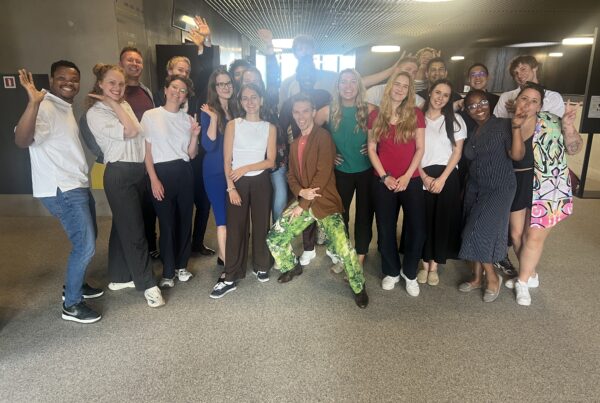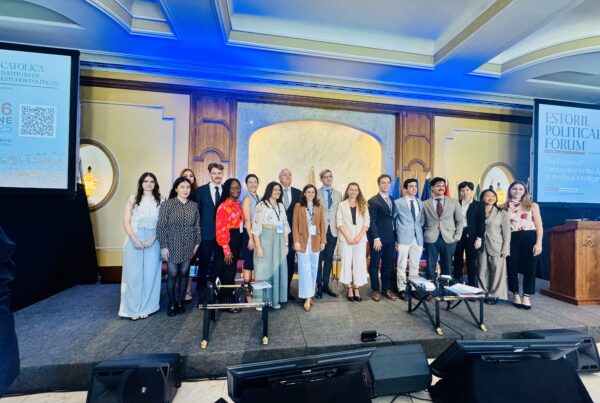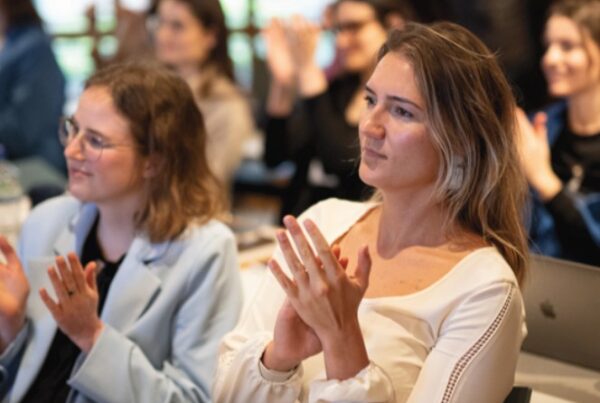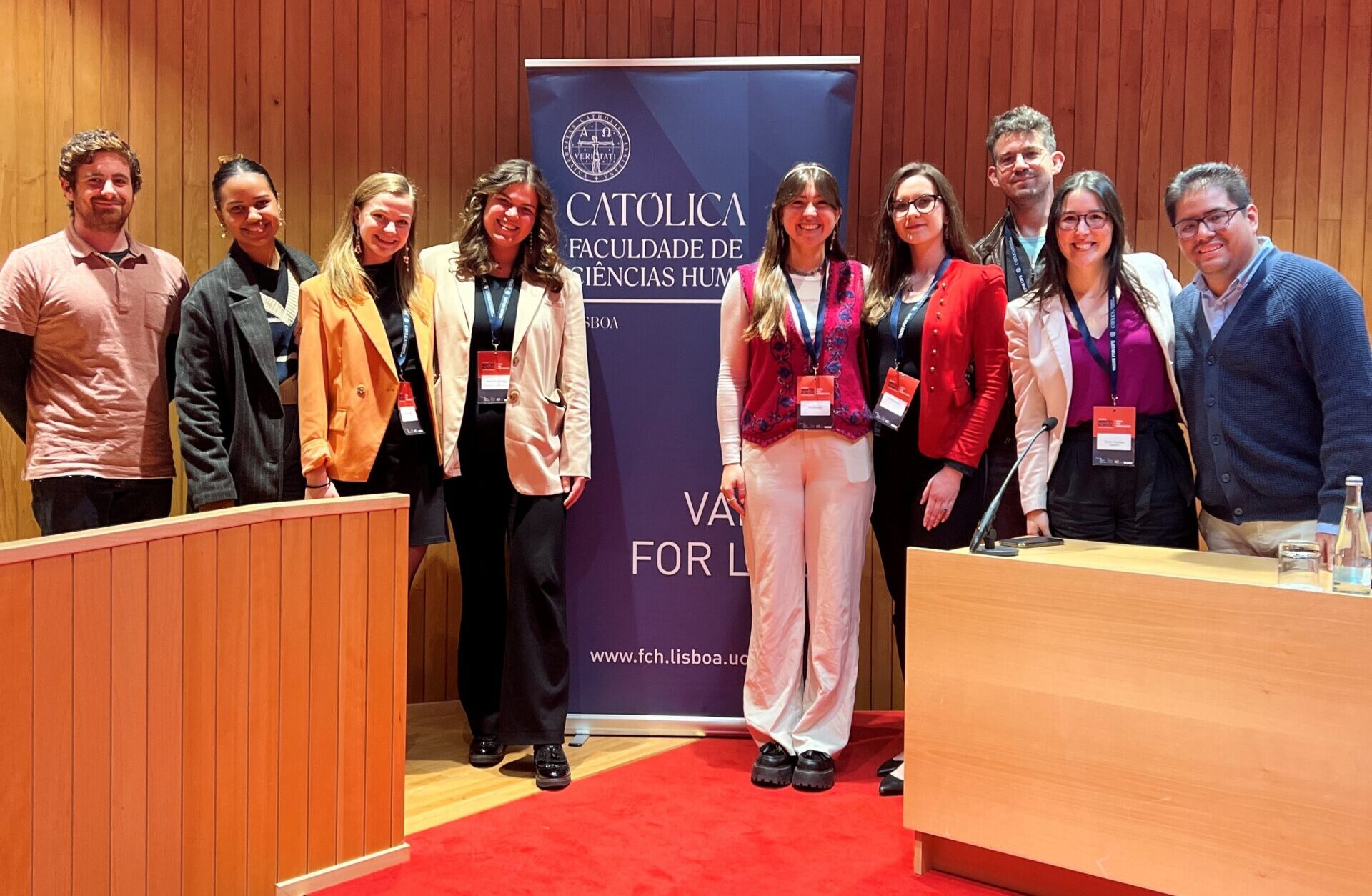
The 4th Lisbon Winter School for the Study of Communication (12th–15th January 2024), hosted by the Catholic University of Portugal and organised in cooperation with the Europaeum, the Annenberg School for Communication at the University of Pennsylvania, the Chinese University of Hong Kong, and the Helsinki Institute for Social Sciences and Humanities at the University of Helsinki, investigated the relationship between media and ambivalence. Specifically, it asked how the media environment accommodates mixed or conflicting feelings about topics of interest.
Ambivalence, the holding of two (or more) views on a subject without reconciling the differences between them, is a common feature of most people’s attitudes to many subjects. Media often reflects, and perhaps must strive to reflect, that even as it pursues catchy headlines and polemics that polarise debate.
UCP Rector and President Isabel Capeloa Gil opened the School alongside Nelson Costa Ribeiro, Dean of UCP’s Faculty of Human Sciences, and Alexandra Lopes, Director of its Research Centre for Communication and Culture.
The School then continued with two powerful keynotes, from Guobin Yang of the Annenberg School for Communication (University of Pennsylvania) on “Feeling for the World” and the reporting of suffering during the pandemic, and from Dimitria Gatzia (University of Akron) on “Unravelling the logic of racism in the mind’s maze”.
Students from different universities presented their own work on media ambivalence in various contexts and from multiple disciplinary perspectives. These papers included discussions of media coverage of floods in Chile, satirical conspiracy theories and the “sacred seriousness of play” in online gaming cultures, feminist ambivalence and resilience in contemporary Hong Kong, and ambivalent Latinx attitudes to cultural “cringe”.
The Europaeum’s student participants delivered papers at a special session on the final morning. Topics engaged included culturally mediated ambivalence to climate change amongst Georgian farmers, the attitudes of Amazonian communities to media engagement, ambivalence in European AI policy, and ambivalence towards TikTok.
Students benefited from further keynote lectures including those by Shani Orgad (London School of Economics) on the “waste” of contemporary media culture, Francis Lee (The Chinese University of Hong Kong) on “Youth and Digital Media” and Larry Gross (Annenberg School for Communication and Journalism at the University of Southern California) on the media and the fight for gay rights in the twentieth century. The Europaeum’s invited speaker, Juliane Prade-Weiss (Ludwig-Maximilians-Universität Munich) gave a lecture on the ambivalence of “participation” in different literary and media sources.
Student participant Freya Entrup from Charles University, Prague reflects:
“The Lisbon Winter School 2024 was a deeply impressive event for me. I got to hear from world-renowned researchers in the stunning city of Lisbon. The organization was impeccable and I left with many profound connections and new ideas for my future. I engaged with professors and students from the US and Hong Kong which was extremely enriching and such a rare opportunity for me. The Europaeum emphasized group activities in the evenings which allowed me to make lasting connections with students who participated in a very friendly atmosphere. Thank you so much for the opportunity to participate.”
Student participant Ilona Poseluzna from the Jagiellonian University, Kraków adds:
“This event prompted me to reflect on how we convey our scientific endeavours to a broader audience, particularly to those from various disciplines. I was deeply inspired by engaging with individuals who adopt a more theoretical approach to science from countries such as Lithuania, Finland, Germany, and the USA. Engaging in extended discussions about theory over dinner, accompanied by exceptional Portuguese wine, was both enjoyable and intellectually stimulating.”
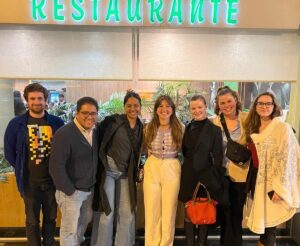
The Europaeum extends its thanks to the Winter School’s organisers Nelson Costa Ribeiro and Barbie Zelizer (Annenberg School for Communications, University of Pennsylvania), and to its convenors Sarah Banet-Weiser (Annenberg School for the Study of Journalism, University of Pennsylvania), Francis Lee, and Risto Kunelius (University of Helsinki), for including us in this exceptional and wide-ranging interdisciplinary forum.

